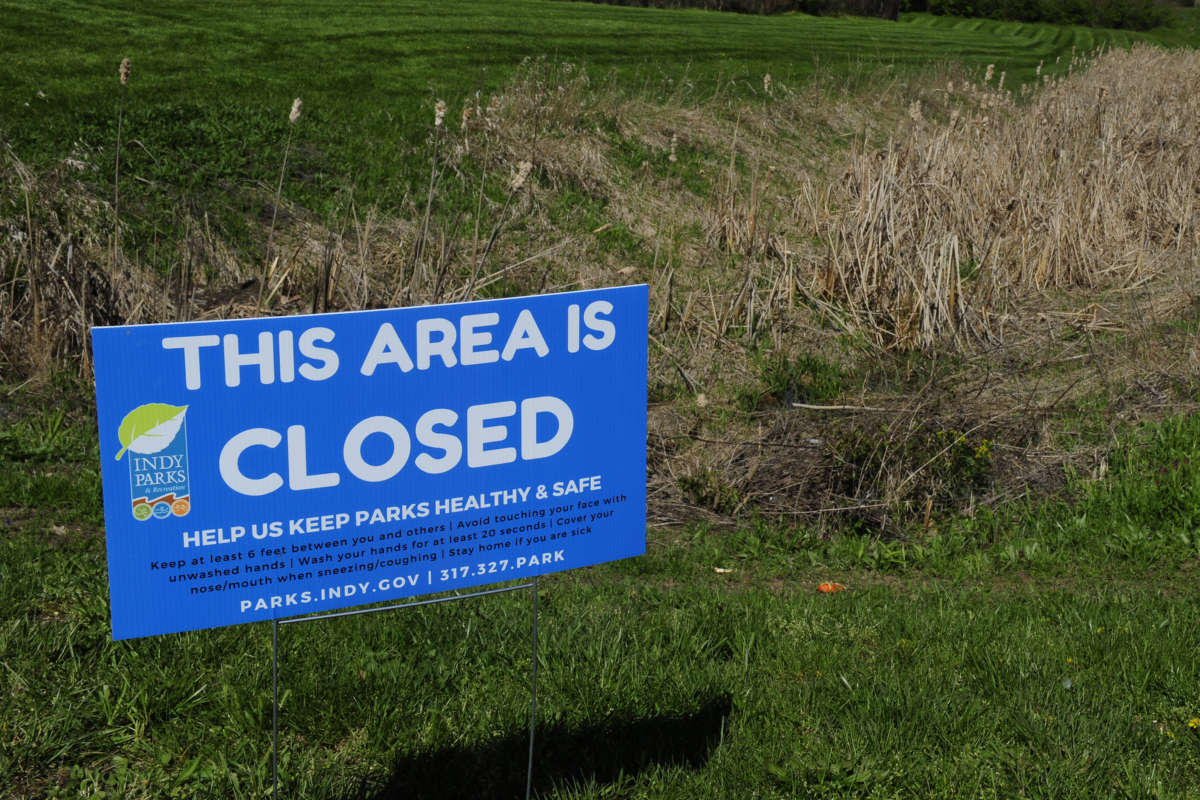Part of the Series
Despair and Disparity: The Uneven Burdens of COVID-19
On the weekend that shelter-in-place orders were announced in California, regional parks and beaches registered record-high visits. The following week, as parks started to close across the country, visits boomed in the few that remained open, such as the Grand Canyon. In a historical moment of uncertainty, thousands sought relief in nature.
Isolation in quarantines can have disastrous psychological outcomes, including post-traumatic stress symptoms, confusion and anger, sometimes with long-lasting effects. Research has shown that nature can be a protective factor against these dangerous outcomes. In addition to many physical benefits such as reduced risk of diabetes and heart disease, access to nature has been shown to elevate mood, lower rates of anxiety and depression, and even lower mortality rates.
As the COVID-19 crisis passes its peak and we potentially enter several months of sheltering-in-place, it has been suggested that parks should remain open in order to improve community health and well-being.
Like many other inequities that are exacerbated by the COVID-19 crisis, the opportunity to breathe fresh air in a safe green space is not available to all. Policies on park closures — which encourage visiting parks only if adjacent to one’s place of residence — will disproportionately affect low-income, marginalized populations. Urban parks and beaches serve as a backyard for those who do not have one. Moreover, it is well documented in U.S. cities that lower-income and residents of color live in neighborhoods with less vegetation than their white, wealthier counterparts. While some larger regional parks remain open, these are often farther from urban centers and with fewer safe public transit options. Thus, it is increasingly challenging for urban low-income populations to access green spaces.
Outdoor space can also be a safe space for victims of domestic violence. The United Nations warns that there has been a “horrifying surge” in domestic violence under quarantine, as families shelter in the place of supposed safety — their homes. Seeking refuge in nature can not only be a place of healing, but can literally be a place to find physical safety from violence that might be occurring in the home.
The cruelest irony is that among the most vulnerable are the homeless who are constantly outside not by choice but as defenseless victims to viral transmission. Many homeless communities rely on social networks for safety and survival, and individuals are often older and afflicted by chronic diseases, making them especially susceptible to severe COVID-19 infections.
In California alone, where two-thirds of the unhoused population lives outdoors, Gov. Gavin Newsom recently estimated that there might be more than 60,000 coronavirus infections in the homeless community. Considering downstream impacts of the virus, including mass layoffs and record-high unemployment claims, we can only expect the homeless population to grow as a result of the crisis.
If parks were kept open during the quarantine, solutions could concurrently protect visitors from viral transmission and prioritize equity. For example, urban parks that serve lower income communities should be prioritized as leaders consider plans to ease shelter-in-place policies. Traffic closures on streets to promote safe outdoor access, such as in Oakland and San Francisco, could focus on areas that otherwise do not have green space access. Given that some homeless populations are being relocated to hotels, they may be chosen based on proximity to green space.
Addressing the immediate inequity to green access is also an opportunity to promote solutions that empower local communities in the long term. Emergency green space should be built now with the intent to stay. As the streets remain empty because of shelter-in-place policies, trees, lawns and bushes could be introduced in urban environments. Private, underutilized green space could be donated or bought by local governments to be urgently converted into parks. Milan, Italy, is using this time to massively replace streets with cycling and walking space. Organizations that already work to prioritize equal access to parks for all, such as California’s Parks Now and the Next 100 Coalition, could provide insight into equity-based solutions that have been developed. To avoid dangers of future environmental gentrification, a “just green enough” strategy should be used, which ensures that environmental goals are defined by local communities themselves.
Data suggest that COVID-19 is already hitting people of color the hardest. The inequitable access to safe outdoor space during the shelter-in-place era eliminates one of the few opportunities for vulnerable populations to remain balanced and healthy. In the long term, this will further broaden the chasm between the benefits of nature and populations that are in dire need for them. These times dictate that the most basic action in keeping us healthy — taking a breath of fresh air — should be a right, not a privilege.
Join us in defending the truth before it’s too late
The future of independent journalism is uncertain, and the consequences of losing it are too grave to ignore. We have hours left to raise the $12,0000 still needed to ensure Truthout remains safe, strong, and free. Every dollar raised goes directly toward the costs of producing news you can trust.
Please give what you can — because by supporting us with a tax-deductible donation, you’re not just preserving a source of news, you’re helping to safeguard what’s left of our democracy.
